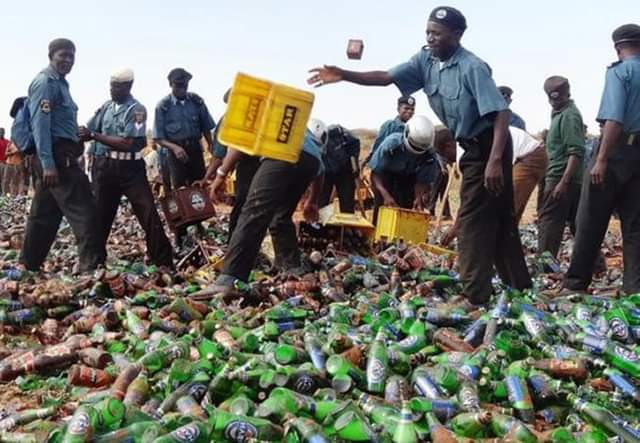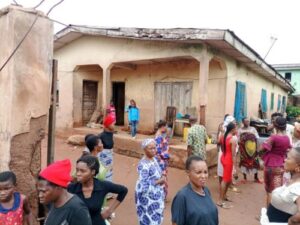
A distributor, John Simon, tells TED ODOGWU how the destruction of alcoholic beverages by Hisbah (Sharia Police) in Kano State, after it secured a court order to destroy large consignments of beer in the state, has affected distributors under the aegis of Amalgamated Beverages Association
How has the destruction of alcoholic beverages by Hisbah affected your business?
We have all been affected, individually and collectively, directly or indirectly for those who buy from the companies and those who buy from distributors. We have bulk buyers, bulk breakers and the hoteliers. We have been tamed like an animal in a zoo. First of all, the prices of beer have risen and, for now, obtaining the product to sell is an uphill task. So, we have been affected. It is a situation that has reduced us to beggars.
How was your consignment impounded?
When we ventured into the business, some few years ago, we were warned against transporting alcoholic drinks in open vehicles but in covered vehicles, which we complied with. We bring in the consignment with covered containers. Despite the directive, Hisbah (Sharia police) kept interfering, particularly with Kano-bound trucks. We sought permission through our lawyer to be allowed to always transport our consignment via the federal highway, which we usually do. Despite using covered vehicles, we are no longer allowed thoroughfare in Kano. So, we need to come in as smugglers and when you encounter a breakdown on transit, you will be arrested.
Meanwhile, the Kano State Government uses its Road Transport Agency officials to arrest beer dealers and these officials are on duty for 24 hours, monitoring trucks conveying any consignment to Kano. They are only interested in intercepting any truck conveying beer to Kano. Kano is not the only town in Northern Nigeria, as we have Katsina, and there is a spot, where beer is sold there without molestation. There is a brewery in Kaduna State but it’s only in Kano that we encounter a myriad of challenges that are beyond my comprehension.
How often are your goods intercepted?
It is not just every month and every week. Those are the ones you hear about. One could be expecting his beer consignment, but suddenly receive a call that the truck transporting his beer consignment has been intercepted. The other day, one truck heading to Hadeja and another to Nasarawa were intercepted and they amounted to a huge loss for me. That incident crippled my operations and brought me down on my knees, particularly my indebtedness to the banks that have been financing my business.
Have the banks contacted you to recover their loans?
The banks are currently keeping quiet because they are aware of what happened. Some of my friends have made me their enemy because I cannot repay them the loans they gave me, though some customers, who bought beer from me, still owe me. That is exactly what I have been going through. Paying school fees for my children is impossible. I owe banks. The effect is better imagined than described. If you deal with banks, you deal with loans as banks can sponsor your business by giving you loans. Also, you meet friends who can help but the snag is that I still owe them. A friend gave me a loan of N5m and I have been able to repay N4m, remaining N1m. Also, I owe another friend, who gave me N810, 000 as a loan, which I have not been able to repay, including other extra loans from other sources and my personal money before venturing into the business. It is only by God’s grace that we are still surviving.
What do you plan to do?
We are just seeking divine intervention as the situation is not easy. I have been in Kano for over 35 years and the question is: where am I going to at my age?
So, what do you plan to do?
We are hoping that, one day, a messiah in human form will come and give it a human face to know that the country belongs to all of us, as well as allow us the freedom to transact our business unhindered. Prior to the death of the former Emir, Alhaji Aminu Ado Bayero, we were made to have the impression that Sabon Gari is for the non-indigenes. That’s where we stay. When a child is born, we use alcohol to welcome the baby just as when we record death. But we are not free to celebrate any new born baby using alcohol. Where do I start from? The breweries, for example, pay tax to the government.
In which areas are the raids common?
It’s common in Sabon Gari. That’s where they often raid. There is nothing we have not done; we have contacted prominent human rights lawyers, like Festus Keyamo who tried everything within the framework of the law but failed to achieve any result. We are only waiting for divine intervention.
Some people ask why are you still distributing alcohol when you know about Hisbah?
What we were told is that Hisbah would not allow their people to come to Sabon Gari and drink beer, and that Sharia is only for Muslims, not for non-Muslims. We do not sell to them (Muslims). However, in the night, for some of us, who sell beer, people come and request beer and we cannot identify them as Muslims or Christians. People do not move around with their ID cards, indicating whether they are Christians or Muslims. We believe that those who don’t drink beer cannot buy beer. They are not hawked in the market but only in bars or restaurants, where they sell them. When people come and request beer, you give it to them. We do not ask the customers whether they are Christians or Muslims as we know that Muslims will not come and drink beer.
What kind of business do you do now to survive?
I currently sell water and non-alcoholic beverages, including malt drinks as I do not have the money to continue selling beer. Where will I source the money to continue selling beer?
What is the value of your goods that were destroyed?
I have lost over N35m and other various sums of money, all of which have gone down the drain.
Can you quantify in terms of naira how much members of the association have suffered, since Hisbah started its activities?
We have gone to Festus Keyamo and for the first time, we know how much we paid for his presence in Kano and Kaduna. At a stage, he started sending his representatives. Thereafter, we contacted a human rights activist from Kaduna. He did his best but failed to make any difference.











